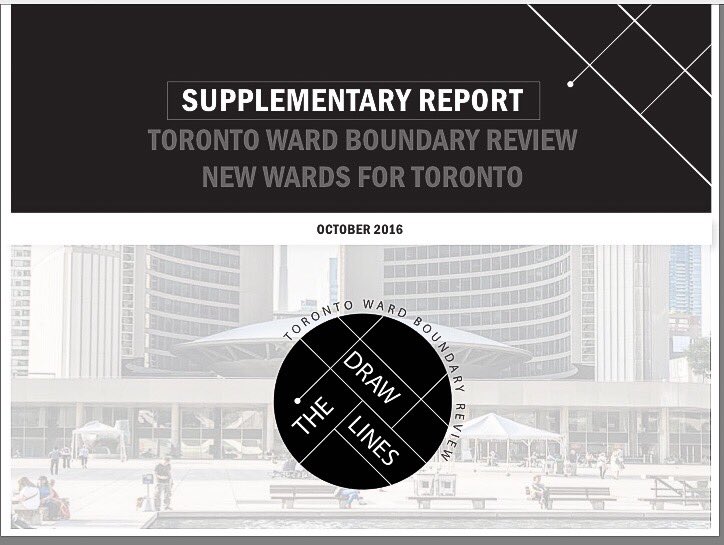After 20+ years of study & practice, I still get shell-shocked by the power of personality type.
Expect to be triggered, whether you dismiss psychology because @nntaleb or think everything is archetypes because @jordanbpeterson.

The B5 are based on the surveys & experiments of academic psychologists, while the MBTI comes from the psychoanalytic work of Carl Jung.
But one of them is virtually useless in practice compared to the other.
Understanding the B5 is incredibly valuable, but for unexpected reasons. They are a great example of how pseudoscience can become accepted fact.
Validity is about making sure the concept/construct captures what it's supposed to.
Reliability is about consistent metrics and replicable results.
It's defined as anything from assertiveness in conversation to seeking out social interaction and standing out in a crowd to being enthusiastic and action-oriented. How valid a metric can you have of all those things and more?
In Jungian typology, an extrovert is someone who gains energy from social interaction. Hard to get any simpler and robuster than that. You know the answer by honest self-examination, no test instrument required.
Yet, I've ALWAYS scored as an introvert on both B5 and MBTI inventories. Some "validity" for the B5, right?
In practice, I have met (and tested!) many an extrovert who are a downright liability in fluid social contexts with people they don't know.
But no matter how high-value the interaction, even with longtime and tested friends, I need alone time to recharge.
The vast majority of B5 research depends on peer review and p-values for publication, citation & funding.
Peer review means perverse incentives without skin in the game. P-values can be easily hacked and have no statistical validity.
This is the case with most social "science" - from business & finance to experimental psychology.
The incentives are there: "findings" get published and funded, "non-findings" don't.
See @nntaleb's many (non)technical posts & articles for the evidence.
Hypothesis testing is widely used because it takes much more time & effort to understand & practice probability than to repeat a rote procedure.
Fact is stranger than fiction.
But even if the Big 5 weren't mushy & unscientific, what use could they be in practice?
People who score high on openness frequently spend their entire lives as couch potatoes.
Some of the most intellectually rigid people I know have the most "open" experiences - travel, even survival, change for the sake of change, career shifts etc.
But what would the score tell you about what they'd actually do? In my experience of myself & others, not much.
In theory, others' neuroticism can be relevant to social situations or group activities where you depend on their performance & comport.
But a high neuroticism score doesn't necessarily mean you're emotionally dysfunctional.
Emotionally "stable" people can bomb spectacularly in public and in their personal lives.
If you're socially dysfunctional, it won't matter one bit whether it's because of "neuroticism" or 165 other possible reasons.
Emotional control affects your well-being? What an insight! And there is a special test and reams of research to tell you that.
The B5 can't even agree if this trait is about a preference for planned rather than spontaneous activity or a measure of how dutifully you get things done.
Either way, you will find yourself answering questions about whether your place is messy & the like.
Conscientiousness ≠ effectiveness.
What use is it to anyone that you will grind at a task only to return a well-packaged piece of garbage?
It's good to know you can rely on someone to get groceries.
But what use is that beyond the most superficial of job responsibilities & personal relationships?
Perhaps the most useless of the B5 personality traits. Again, you don't need a test to be able to spot people's level of agreeableness in a quick chat.
Some people prefer a less confrontational personal style. So what?
But high-agreeableness people can be even more annoying and offputting than the disagreeable. This applies with even more gravity in non-mediocre, high-power, high-value company.
Yes, presentation is essential, but you can be polite, charming and disagreeable all at once. Or agreeable and swaying even the most intransigent.
The concern: the person would harm one's own reputation & mine because bombing with the group because too agreeable.
Some of the most penetrating ideas & criticism re my work have come from people who are very high on agreeableness - and without prompting.
Messing up this orientation is the biggest embarrassment of the Big 5. Because that's how Jung originally proposed it 100 years ago - as an orientation, not skill/sociability (an ideal-type illustration he used).
Perhaps the only universal tell - with some experience - is that extroverts literally "look out" into the world. Introverts don't.
An introvert without alone time will go berserk just like an extrovert without talk time will go psychotic. Sooner rather than later.
Some of the most engaged & active people I know are terribly introverted.
Extroverts make excellent couch potatoes & inertia junkies.
Orientation only gets interesting (and useful!) when combined with the four cognitive functions he proposed to become the MBTI.
- two perceiving functions: sensing and intuition (~how you relate);
- two judging functions: thinking and feeling (~how you decide).
These types have very different expression in men and women, so in practice they are actually 32.
Myers & Briggs wanted to make his theory practical to help women find the best jobs as they entered the workforce in WWII.
Many others built further models and tests based on Jung and the MBTI.
Even the term MBTI I use loosely to convey the main influence on my practice.
Personality type has become synonymous with astrology and esoterica because most "resources" are abstract & theoretical.
Skepticism is more than warranted.
- Why I find Jung/MBTI/Kiersey to be a useful “type” framework in personal psychology.
- What I do and what I avoid with the MBTI or any other personal psychology.
- The basics of personality type & how to benefit from it.
These are not hard-and-fast rules, nor based on any theory. They are not about ethics or morality or you being “special”. They are motivated entirely by usefulness & painful practice – my own.
FORGET THIS AT YOUR PERIL.
To speed up your getting to know someone, ask about background, family, work, avocations - anything they have DONE and anyone they've been around for long. No shortcuts.
If you do, you will be very wrong - no exceptions. You will miss opportunities or infect your life with human garbage.
People who are aggravating at first sight can bring great value - and vice versa.
Just PAY ATTENTION when they do.
This usually happens earlydays if you're curious enough to ask. But most don’t listen into the answers, so the person tunes out quickly – back to worthless banter.
Yes, types tend to self-select into certain careers. But your personality type is not your experience & calling - those you create.
Misusing psychometrics for career choice is a major reason the MBTI got a bad rep.
We project. A lot. Because easy & leads away from cognitive dissonance.
To get people, watch out for the feelings, thoughts, decisions they project on you & others.
To get people, beware of projecting your feelings, thoughts etc. on them.
In psychology (practice), ignore people's politics, religion, beliefs etc.
People with polar-opposite psychology can state identical values. But they will feel and ACT differently in the same circumstances.
You'll never GET people you aren't without getting yourself.
This requires extreme honesty. What do you fear? What makes you weak? Why do you feel the way you do?
Heuristic: the greater your resistance, the closer you are to insight.
Opposites sustain their opposites. In psychology, this manifests most clearly as (often haphazard) compensation. Weak people talk up respect. Ruthless people talk up kindness. Disorderly people talk up order.
Just be consistently aware that it exists and you'll start seeing it naturally. As long as you pay attention to OTHER people.
Perception is about everything. People naively mistake getting thought process for the crux of psychology (practice). Without perception, it’s game OVER before your psychology even started.
No surprises: this is also the most challenging task.
Because you have to let go of what you think you know about reality to get anywhere with perception.
Because you can't experience others' perceptions. Which makes getting your own mis/perception even moar critical.
Watch out for the blank space. What people don't do, don't say, don't emote. Things that didn't happen are the ultimate signal, and triply so in getting personality & psychology.
Pay attention.
Understand: mentality & physicality are one, and a dynamic system. To see psychology in the moment & through time, you need to take into account the conditions of physicality: water, food, sleep, exercise, habitation.
The biggest mistake to avoid in using personality type is to take it as a static object, set of interests, views, skills etc. Personality is a dynamic, not a state, not an object, not a sack of fixed “traits”.
The dynamics of human psychology are infinitely complex. To reach in in one go is a fool's errand. Reduce to clarify. Instead of recognizing the dynamic, eliminate types it isn't.
Static frames are a major barrier to getting the most out of personality type, especially re personal development.
We tend to revert to static frames when we try to reduce a complex dynamic system to cause-effect.
• internally – different systems, perceptions, instincts etc. interacting;
• externally – relative to stimuli in the moment;
• globally – along the path of lifetime growth.
To start getting type growth, never forget this.
I. Dealing with the child,
II. Developing the inverse.
III. Cracking the ego-complexes.
Some call this "developing" the inferior, but that's not quite it. It's more about facing the inferior function and owning it – which effectively disables its blowup expression.
If you've seen an ENTJ blow up in anger, you'd know that whatever words are discernible at that time would be coached in such terms.








